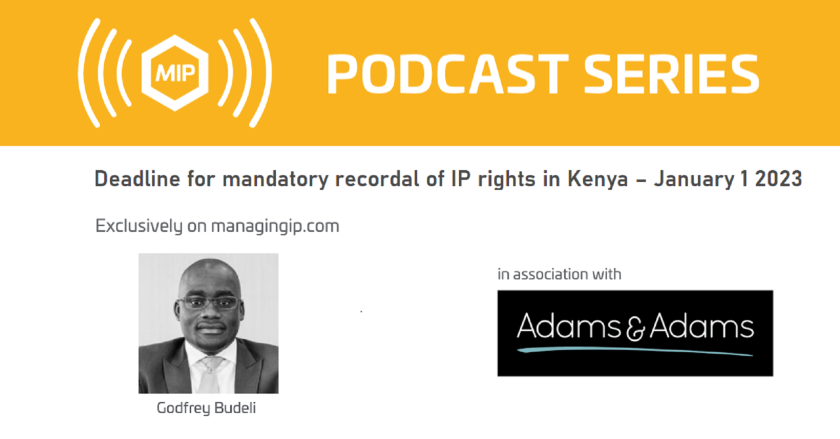In the second episode of a three-part podcast series by Adams & Adams on doing business within the dynamic intellectual property world of Africa, the firm’s anti-counterfeiting head, Godfrey Budeli, talks to Managing IP about new rules for IP rights owners operating in Kenya that are designed to combat counterfeit goods.
As the country seeks to promote and facilitate legitimate trade, Kenya’s Anti-Counterfeit Authority (ACA) has amended the Anti-Counterfeit Act to include a mandatory recordation process of IP rights. Among other changes, the new legislation states that a record of IP rights that pertain to products being imported into Kenya must be provided to the ACA, irrespective of the place of registration. The new legislation will take effect on January 1 2023.
Budeli recently met with Dr Robi Mbugua Njoroge, the CEO of the ACA, to learn more. In a chat with Managing IP’s Rani Mehta, Budeli discusses the legal basis and purpose for the recordal, and the wider impact of the amendments to the Anti-Counterfeit Act, and provides practical examples of how global businesses can react to the changes in Kenya.
Season 2, Episode 1: Oppositions based on well-known rights in Africa
About Adams & Adams
Adams & Adams is an internationally recognised and leading African law firm that specialises in providing intellectual property, corporate and commercial services.
The firm is firmly rooted in Africa – with a tenacious belief in the economic growth potential and spirit of the continent. The head office in Pretoria, the administrative capital of South Africa, provides the perfect gateway through which it partners, supported by some 700 professionals and staff, render a broad range of legal services to clients in Africa and the rest of the world.
Through its associate offices and long-established networks, the firm serves a global client base throughout the African continent in matters of intellectual property, commercial law, property and litigation.
In 2021, experts from Adams & Adams co-produced a popular three-part podcast series on the IP enforcement of pharma in Africa.
You can find all the Managing IP podcasts here.












